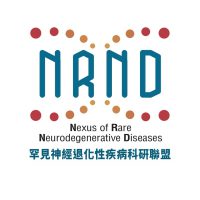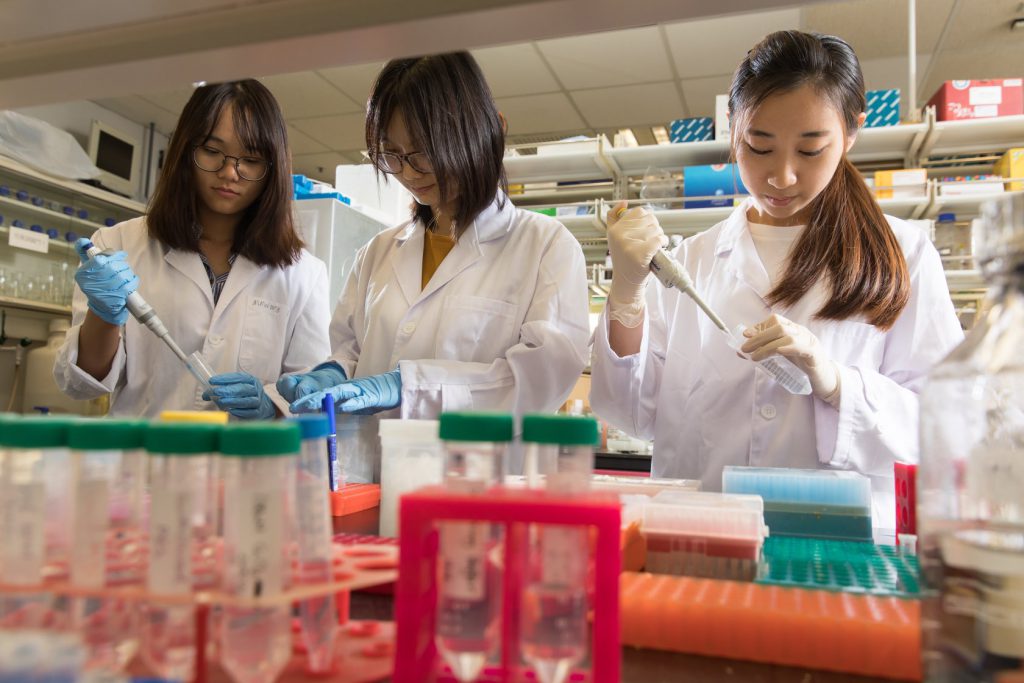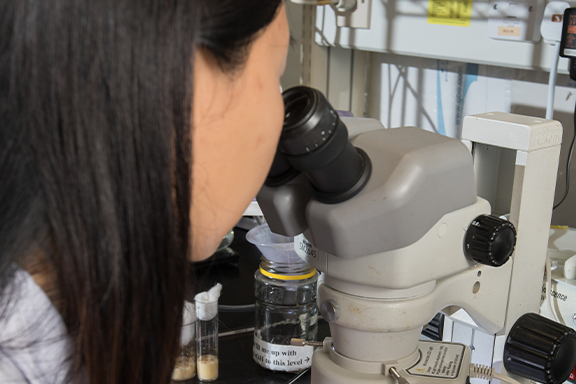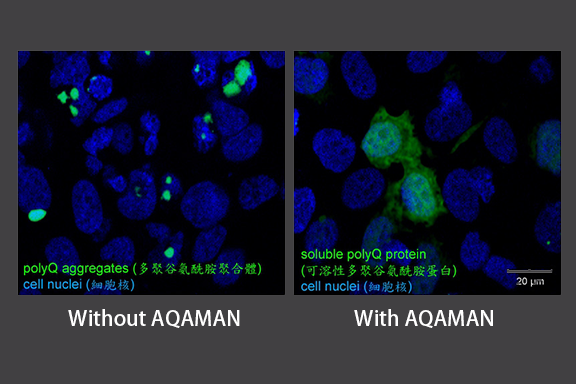Our Work
Research Topics
Identification of novel gene mutations that cause rare neurodegenerative and neuromuscular diseases
Pathogenic mechanism studies of rare neurodegenerative and neuromuscular diseases
Pathogenic mechanism studies of rare neurodegenerative and neuromuscular diseases Read More »
Drug development for rare neurodegenerative and neuromuscular diseases
Drug development for rare neurodegenerative and neuromuscular diseases Read More »
Publications
Zhang, Q., An, Y., Chen, Z.S., Koon, A.C., Lau, K.F., Ngo, J.C.* and Chan, H.Y.E.* (2019) A peptidylic inhibitor for neutralizing r(GGGGCC)exp-associated neurodegeneration in C9ORF72-associated amyotrophic lateral sclerosis and frontotemporal dementia. Mol. Ther. Nucleic Acids 16, 172-185.
Hong, H., Koon, A.C., Chen, Z.S., Wei, Y., An, Y., Li, W., Lau, M.H.Y., Lau, K.F., Ngo, J.C.K., Wong, C.H., Au-Yeung, H.Y., Zimmerman, S.C., Chan, H.Y.E.* (2019) AQAMAN, a bisamidine-based inhibitor of toxic protein inclusions in neurons, ameliorates cytotoxicity in polyglutamine disease models. J. Biol. Chem. 294, 2757-2770.
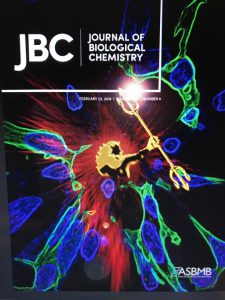
Knowledge Transfer Activities
The lack of awareness and knowledge about rare diseases often lead to delayed diagnosis. Many patients and doctors mistake early symptoms as signs of common diseases and therefore miss the golden opportunity for a timely treatment. Recognizing that knowledge is power, Professor Chan and his colleagues initiate public awareness campaigns to empower the local community through the dissemination of knowledge. Increasing public awareness is also a way to garner support for political advocacy and therefore instrumental in improving social security and life standards of patients.
PAST
Video Campaign : Three video clippings about patient registry , December 19, 2020
“I am a Patient of Spinocerebellar Ataxia SCA”
https://youtu.be/2PL_rVSJqpc
“How to Stop SCA from Passing to the Next Generation”
https://youtu.be/ShDcK2hJ2t4
“The Hong Kong SCA Patient Registry – Registration Procedures”
https://youtu.be/_8QDmA4jxEA
“Newborn genetic screening expanded to 8 public hospitals to find rare diseases and build a genetic database to identify genetic diseases” (published on hk.on.cc, 17 October 2020)
https://hk.on.cc/hk/bkn/cnt/news/20201017/bkn-20201017121231258-1017_00822_001.html?fbclid=IwAR1SKYj3bdD0mSRoEB2iuicVHfsBJnat-zsYxT7YqXi_43KhZPZD3EU6S5Q
“Rare diseases are not rare, the medical industry finds a way out” (published on Bloomberg Businessweek/Chinese Edition; issue 201; 19 August 2020)
http://www.bch.cuhk.edu.hk/LDR/images/news/200819/Bloomberg-Bus%20week-abstract-CHI-20200819.pdf
As organizer, “The Difference between Alzheimer’s disease and Huntington’s Disease & Relevant Patient care, Treatment and Concerns” on-line seminar, School of Life Sciences, The Chinese University of Hong Kong, 7 March 2020
https://youtu.be/c_izsxNRLa0
As organizer, “The Difference between Parkinson’s Disease and Spinocerebellar Ataxia & Relevant Patient care, Treatment and Concerns” on-line seminar, School of Life Sciences, The Chinese University of Hong Kong, 29 February 2020
https://youtu.be/s82mfthcSEo
As organizer, “Hong Kong Rare Disease Action Plan: Tri-partite Collaborations” World Rare Disease Day Symposium, The Chinese University of Hong Kong, 28-29 February 2020
(*Due to the situation of Wuhan Novel Coronavirus outbreak, the above event will be postponed. Details of re-arrangement will be announced once available.)
http://www.sls.cuhk.edu.hk/index.php/news-and-events/news/630-world-rare-disease-day-2020-research-symposium-held-on-28-29-feb-2020
As one of the keynote speakers, Professor Edwin Chan will be giving a speech at the “Thematic Conference on Neurodegenerative Diseases” hosted by the International Union of Biochemistry and Molecular Biology (IUBMB), February 25-27, 2020.
(*Due to the situation of Wuhan Novel Coronavirus outbreak, the above event will be postponed. Details of re-arrangement will be announced once available.)
https://iubmb.npas.programs.sinica.edu.tw/
“Rare disease patient registries in HK see low enrolment rate” (published on MIMS, Doctor / February issue)
http://www.bch.cuhk.edu.hk/LDR/images/news/2020Feb/MIMS-2020Feb.pdf
“CUHK Survey Finds Rare Disease Patient Registry is not well-received
Seminars and Voluntary Outreach Teams will be Arranged in 2020”, issued on December 19, 2019
https://www.cpr.cuhk.edu.hk/en/press_detail.php?id=3202&t=cuhk-survey-finds-rare-disease-patient-registry-is-not-well-received-seminars-and-voluntary-outreach-teams-will-be-arranged-in-2020
Video Campaign : Three Touching Stories about Rare Disease Patients and Caretakers, December 6, 2019 – February, 7 2020
“I still have a dream”
Cheng Ting-Kin, a patient of Spinocerebellar Ataxia, describes when he was diagnosed and how he suffered from the disease…
(Uploaded: December 6, 2019)
“I want euthanasia”
Chan Sze-Wai fell victim to Spinocerebellar Ataxia since she was 17. Her mother and community nurse describe the everyday challenges that Sze-Wai and they face.
(Uploaded: January 5, 2020)
“There’s a 50% chance of me inheriting the disease…”
A story of ambivalence told by To Kan-Chong, Ken, a care-taker of a patient with Huntington’s Disease.
(Uploaded on: February 7, 2020)
As one of the keynote speakers, Professor Edwin Chan gave a speech at the “Chinese Spinocerebellar Ataxia Medical Symposium and Doctor-Patient Exchange Forum 2019” hosted by Penguin Home Spinocerebellar Ataxia Patients Care Center in Beijing, December 21-22, 2019.
“How Hong Kong can contribute to rare disease research in the Greater Bay Area?”, Guangdong-Hong Kong-Macao Greater Bay Area Rare Disease Collaboration, The 8th China Rare Disease Summit, Chinese Organization for Rare Disorders; September 20-22, 2019.
As Invited speaker, Discovery Research for Rare Neuronal Diseases, 2019 World Rare Disease Day Symposium, Hong Kong Alliance for Rare Diseases, Hong Kong Science Park, 2 March 2019
“How Should the Healthcare and Social Welfare System respond to the Needs of Patients with Rare Diseases? Building Up Patients Registry” Hong Kong Alliance for Rare Diseases 2017 World Rare Disease Day Symposium, City University of Hong Kong; February 25, 2017.
“Opportunity and Challenge to Establishment of Patients Registry for Rare Diseases” Hong Kong Alliance for Rare Diseases 2016 World Rare Diseases Day Symposium – Care is not Rare, Hong Kong; February 27, 2016.
Others :
Technology Transfer Activities
Technology transfer is also a kind of knowledge transfer that aims at disseminating new knowledge so that as many people as possible can benefit from cutting-edge innovations developed by researchers. Moreover, technology needs to be transferred to pharmaceutical institutions with interests as well as the financial means to further develop a certain technology. An important step for technology transfer is to register the innovation through patents. Founder of NRND, Professor Edwin Chan has obtained U.S. Patents for two of his innovations and many other patent applications from various members of NRND are filed and pending.
Furthermore, when institutions express interest in developing a new drug with the patented technology, researchers of NRND could work as consultants throughout the clinical processes. Technology transfer ensures that innovations developed for further exploration are made available to the public and therefore maximises the benefits.
